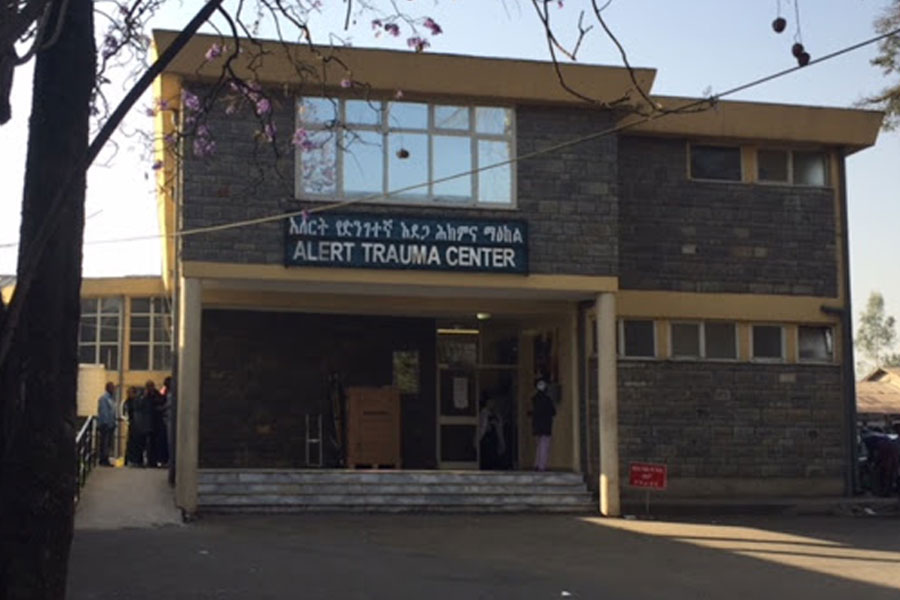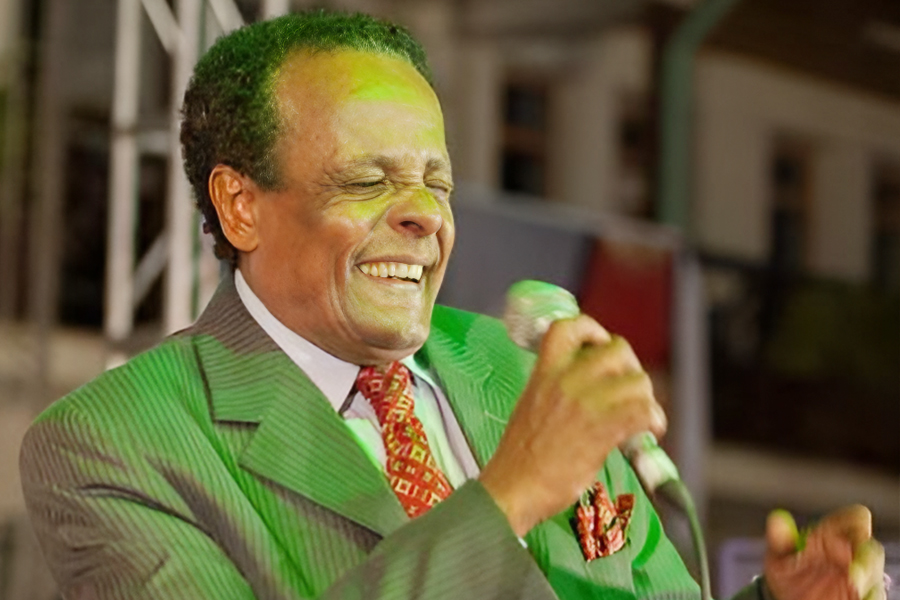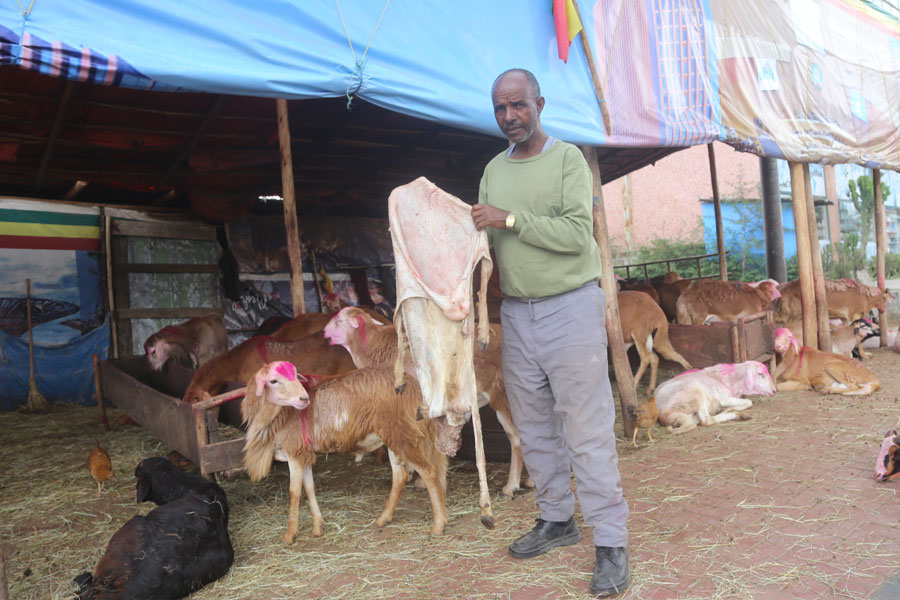
Fortune News | Jun 19,2021
Jul 9 , 2022
By Eden Sahle
Recently, I came across a story of grieving teenagers who lost their father to suicide. Worse still, their father shot himself in front of his teenage and underage children. They are understandably inconsolable. They have witnessed a horrific scene that will change them for life. Those who knew him could not be more surprised. They had assumed that he was a glass-half-full kind of guy no matter what life threw at him. But when his business failed, it was unbearable.
When most heard this agonising story, their reaction was one of indifference. “Yeah, it’s crazy what he did,” they say. Then the conversation of mass killings in Wellega comes up, to which they respond, “such things still happen? Crazy!” They quickly jump into another topic that makes them laugh. The tragedies were quickly forgotten and replaced by jokes.
Since the start of the pandemic, where thousands have died and others were killed in a war, many are returning to normal activities considering the death of others as merely detail. It seems the nation is no longer fazed by the single and mass death count. Gone are the days when the passing of individuals felt devastating, whether we knew the people or not. People are fine as long as they and their families are safe and far from danger.
The death of innocent victims should be a source of grief. The fact that violence continues to occur at this rate should be alarming. People massacred because of their identity and the place of their birth should sicken us all. We should be talking about their life and death at length than the politics. We should connect their struggle and fear to ours. We cannot be numbed like we are now.
I have noticed how people in Addis Abeba feel different than in the regional states. The latter no longer feel safe going outside. Violence is a constant to them and danger runs in their mind at all times. Those of us in the capital can go about our daily routines while hearing the death of many as news and shutting it off entirely.
The country is incapacitated by the awful, tragic news and by the reality of ongoing violence and tribalism that does not seem to have an end. People in the states wish to frequent public places as we do without their hearts racing with fear of being killed and losing their families. They want to go to places without scanning the surrounding, making sure harm is not imminent. They would like to function “normally.”
The frequency at which we are experiencing violence and mass death is eating away at our sensitivity. When we are exposed to death regularly, we can become desensitised to it, affecting how we empathise, mourn, and grieve.
Desensitisation is a therapy medical professionals use to treat phobias and other mental health disorders so that patients do not panic when they experience similar situations. While it can be beneficial in some cases, it can also be detrimental in most others. When we become desensitised to violence and death, we could become less sensitive to others’ suffering, lose the ability to empathise and even start behaving aggressively.
It is natural to grieve and mourn when death occurs. After experiencing such a massive loss as a nation, where is our shock as leaders and citizens? Where is our anger at the death of innocent people? Where is our guilt of not being able to help? Where is our helplessness, yearning, and sadness for the people who are paying with their precious life?
Soldiers, medical professionals, drug users, and those living in areas with high crime rates are more susceptible to death desensitisation. If the experience of seeing people dying, in real life and the media, continues to be normalised, we may no longer experience an emotional reaction to it. We may continue with our day as if nothing ever happened, as we are doing now.
Avoiding the emotions associated with death may seem to offer a temporary solution to deal with the constant exposure. But it harms our mental health and our relationship with others in the long term if it is not appropriately addressed. The public should be alarmed about its desensitised feelings and work on re-connecting to tragedies and the loss of others. Though this brings negative emotions along with grief, this can help people with death desensitisation return to a healthy relationship with loss.
PUBLISHED ON
Jul 09,2022 [ VOL
23 , NO
1158]

Fortune News | Jun 19,2021

Fortune News | Jun 17,2023

Viewpoints | Nov 18,2023


Commentaries | Jan 03,2021

Commentaries | Jul 30,2022

Obituary | Mar 02,2024

Radar | Oct 14,2023

Agenda | Jan 13,2024

My Opinion | Jul 27,2024

Photo Gallery | 177738 Views | May 06,2019

Photo Gallery | 167950 Views | Apr 26,2019

Photo Gallery | 158640 Views | Oct 06,2021

My Opinion | 137001 Views | Aug 14,2021
Commentaries | Oct 25,2025

Dec 22 , 2024 . By TIZITA SHEWAFERAW
Charged with transforming colossal state-owned enterprises into modern and competitiv...

Aug 18 , 2024 . By AKSAH ITALO
Although predictable Yonas Zerihun's job in the ride-hailing service is not immune to...

Jul 28 , 2024 . By TIZITA SHEWAFERAW
Unhabitual, perhaps too many, Samuel Gebreyohannes, 38, used to occasionally enjoy a couple of beers at breakfast. However, he recently swit...

Jul 13 , 2024 . By AKSAH ITALO
Investors who rely on tractors, trucks, and field vehicles for commuting, transporting commodities, and f...

Oct 25 , 2025
The regulatory machinery is on overdrive. In only two years, no fewer than 35 new pro...

Oct 18 , 2025
The political establishment, notably the ruling party and its top brass, has become p...

Oct 11 , 2025
Ladislas Farago, a roving Associated Press (AP) correspondent, arrived in Ethiopia in...

Oct 4 , 2025
Eyob Tekalegn (PhD) had been in the Governor's chair for only weeks when, on Septembe...

Oct 25 , 2025 . By YITBAREK GETACHEW
Officials of the Addis Abeba's Education Bureau have embarked on an ambitious experim...

Oct 26 , 2025 . By YITBAREK GETACHEW
The federal government is making a landmark shift in its investment incentive regime...

Oct 27 , 2025
The National Bank of Ethiopia (NBE) is preparing to issue a directive that will funda...

Oct 26 , 2025 . By SURAFEL MULUGETA
A community of booksellers shadowing the Ethiopian National Theatre has been jolted b...